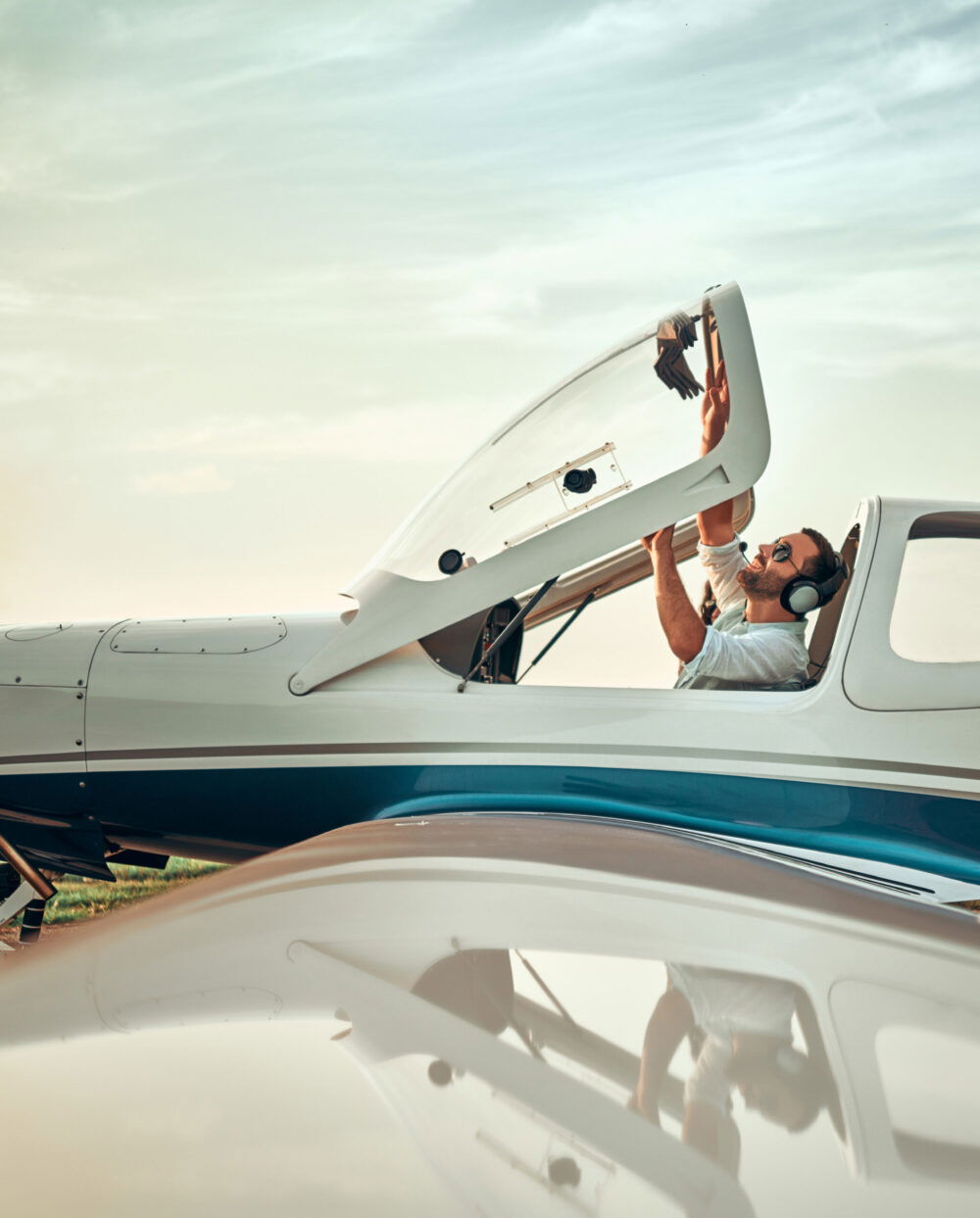Canada-based Horizon Aircraft has finished building a half-size prototype of its hybrid electric vertical takeoff and landing (eVTOL) aircraft, dubbed Cavorite X5.
With a wingspan measuring 22 feet and expected speeds of more than 135 knots, the 15-foot-long prototype “will yield valuable information that will help to reduce technical risk as we move forward with detailed design of our full-scale aircraft,” said CEO Brandon Robinson in an August 2 news release.
Horizon, headquartered near Toronto, Ontario, is one of many aircraft developers entering the emerging eVTOL space, an entirely new type of environmentally friendly aircraft aimed at flying passengers on short hops over congested urban areas.
With construction of the half-scale prototype complete, Horizon can focus on first flight and an initial flight test campaign.
To provide vertical thrust, the Cavorite X5 includes 12 ducted fans embedded in its wings and four more in the forward canards. For forward flight, a pusher propeller is attached to the rear of the fuselage on the aircraft’s centerline. During horizontal flight, movable wing surfaces cover the ducted fans to provide increased lift across the wings and canards.
A fully electric eVTOL currently under development by Germany-based Lilium also includes ducted fans embedded across wings and canards. A prototype of Lilium’s Lilium Jet is currently being flight tested in Spain.
Electric-powered ducted fans typically face challenges related to high disc loading, requiring more thrust and more powerful battery systems than alternative propulsion designs, such as tilt rotors.
But unlike Lilium Jet, the Cavorite X5’s power comes from a combination of gas engine and electric batteries. The approach is designed to allow “the aircraft to fly 98 percent of its mission in a very low-drag configuration like a traditional aircraft.”
The hybrid electric system will be used to recharge the aircraft’s battery array while in flight, as well as providing additional system redundancy, the company said.
“Flying most of the time as a normal aircraft is also safer and should make the aircraft easier to certify than radical new eVTOL designs,” Horizon said.
The production model of the Cavorite X5 is expected to carry four passengers with a single pilot.
About the Aircraft
The full-sized Cavorite X5 is expected to include the following specifications:
| Maximum gross weight | 3,600 pounds |
| Useful load | 1,400 pounds |
| Passenger / crew | 4 passengers, 1 pilot |
| Maximum cruise speed | 240 knots |
| Maximum range | 270 nm |
| Wingspan | 50.3 feet |
| Length | 38 feet |
| Height | 9.2 feet |




